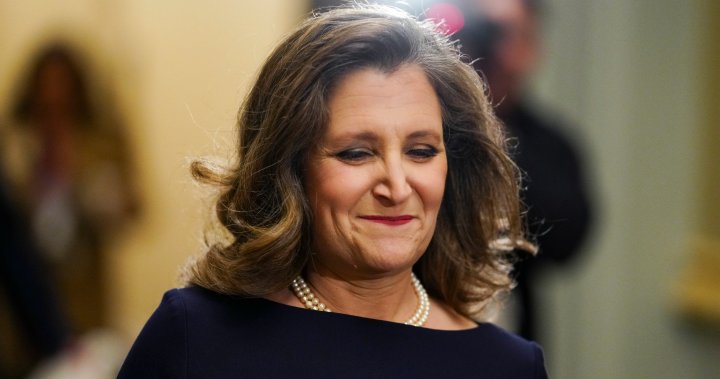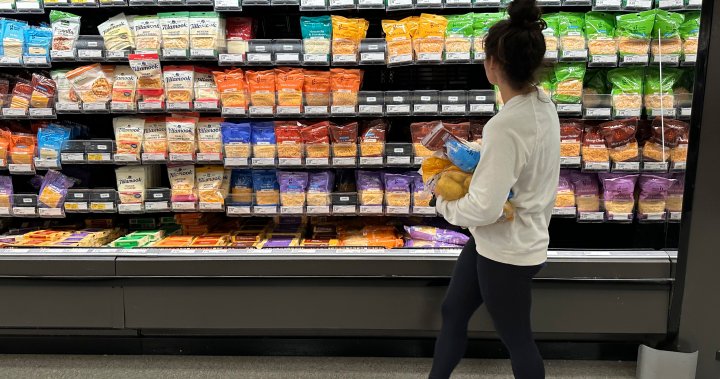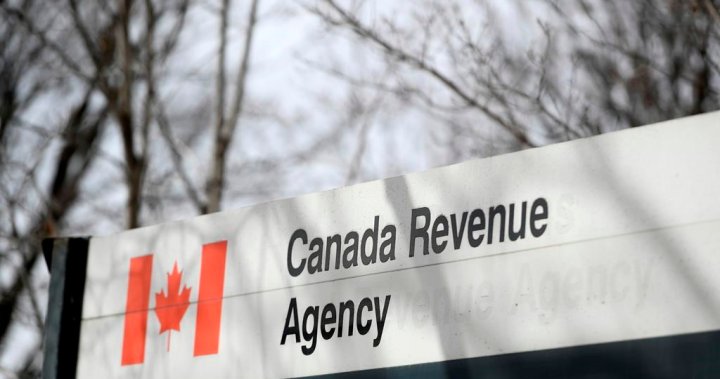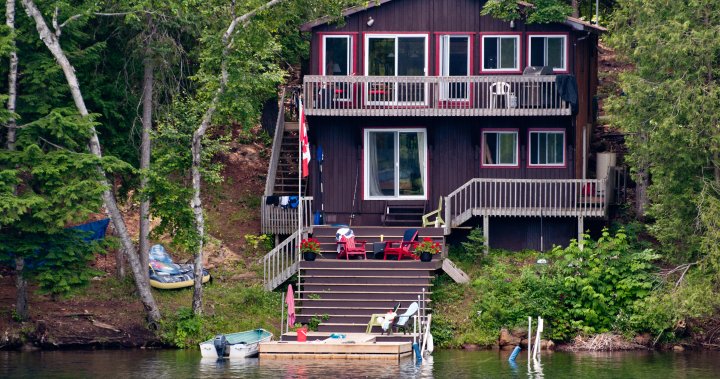The Liberal government delivered a federal budget on Tuesday geared towards young Canadians, proposing a spending plan that promises to do everything from make it easier to buy a first home to crack down on costly concert ticket fees.
“We are acting today to ensure fairness for every generation,” Finance Minister and Deputy Prime Minister Chrystia Freeland said in the House of Commons Tuesday as she tabled the Liberals’ 2024 budget.
“We are moving with purpose to help build more homes, faster. We are making life cost less. We are driving the kind of economic growth that will ensure every generation of Canadians can reach their full potential.”
But the $57 billion in spending announced in the Liberals’ latest fiscal plan comes amid a stronger-than-expected economy and new taxes targeting the wealthiest Canadians. Net new spending included in the budget is pegged at $39.2 billion, thanks to these higher revenue offsets.
Kevin Page, Canada’s former parliamentary budget officer, tells Global News that the 2024 Liberals’ new spending plan is “a relatively large budget,” the size typically reserved for federal election years.
The budget speaks to a belief in “big government” to solve the problems facing Canadians, he says.
“This is more spending, more taxation … it’s a belief that the government can really help its citizens.”
Much of the new spending had been teed up well in advance of Tuesday, as Liberal MPs, cabinet ministers and Prime Minister Justin Trudeau toured across Canada to tout pre-budget announcements.
A bulk of these measures were geared to the housing market, both in terms of building more homes to shore up Canada’s supply gap and making buying a home more accessible for Canadians.
The 2024 budget promises to build 3.87 million new homes by 2031 – two million more than the current expected pace – with a slew of measures and funding to scale up the pace of new home construction.
In addition to making more federal land available for homebuilding and accelerating flows of workers into the construction industry, the Liberals announced changes for hopeful homebuyers.
That includes letting first-time homebuyers who are purchasing new builds extend their mortgage amortizations to 30 years, up from the traditional 25, and raising the limit for withdrawals via the RRSP Home Buyers’ Plan to $60,000, an increase from $35,000.
There are plans to introduce a Canadian Renters’ Bill of Rights to crack down on “unfair practices” in the rental market and changes that would see monthly rent payments count towards building a credit score.
The Liberals position these changes in the budget as a way to “restore generational fairness in the housing market for younger Canadians.”
Francis Fong, senior economist at TD Bank, tells Global News that the “ambitious” efforts to rapidly increase housing supply in Canada could give the government a “fighting shot” at eventually restoring affordability, but they would not provide a short-term fix for those boxed out of the housing market today.
Financial news and insights
delivered to your email every Saturday.
As for the aforementioned measures to make it easier for Canadians to make a down payment and afford monthly mortgage costs, Fong argues that these changes could also inadvertently drive home values higher by growing the pool of buyers vying for scant supply in the market.
While housing affordability was a significant focus in the budget, the Liberal government sprinkled other measures into the document specifically aimed at tackling pain points for the younger generations.
The Liberals are hoping to make buying tickets to a concert like Taylor Swift’s Eras Tour a less painful experience, promising to work with provinces and territories to adopt practices cracking down on fraudulent sellers, to eliminate “junk fees” and improve upfront transparency when buying a ticket.
For students, the federal government is also proposing to extend an existing increase in loans and grants available for an additional year.
The budget also proposes to create a new youth mental health fund at the cost of $500 million.
There’s no path back to a balanced budget in the Liberals’ planning horizon out to 2029, with plans for a $39.8 billion deficit in the current fiscal year.
But as promised by Freeland leading into the budget, the Liberals are holding to their fiscal anchors. The federal deficit is expected to be higher than previously forecast over the budget’s fiscal horizon, but will remain below $40.1 billion in each year. The federal debt-to-GDP ratio will continue to decline and the budget will fall below one per cent of real GDP in 2026-27.
One of the ways the Liberals are planning to pay for new spending in the 2024 budget is with greater revenues tied to changes to how capital gains are taxed.
Capital gains are the returns made from selling an asset like a stock or income property.
The 2024 budget proposes taxing the return from these sales at a rate of two-thirds, up from the current regime of 50 per cent, for any individual’s gains that exceed $250,000. For corporations and trusts, the 66.6 per cent tax rate would apply to all capital gains.
The Liberals say the proposed change will impact only 40,000 individuals and will primarily skirt any returns made by the youngest generation. Only five per cent of Canadians under 30 had any capital gains at all in 2021, according to the budget.
The government is expecting an additional $18 billion in tax revenues over the next six years thanks to the capital gains changes.
Page says the government likely wanted to find a way to boost its revenue to fund additional spending and saw hiking taxes on the wealthiest Canadians as more palatable than a broad tax increase.
Freeland said in her speech that the higher capital gains taxes will fund the federal spending plans and claimed that will directly benefit younger Canadians.
“This new revenue will help make life cost less for millions of Canadians, particularly millennials and gen Z. It will help fund our efforts to turbocharge the building of more homes. It will support investments in growth and productivity that will pay dividends for years to come,” she said.
But Fong says that capital investment is already low in Canada, and the timing of hiking the capital gains tax could discourage businesses from putting more money into the economy at a time when growth is already stagnant. A lack of business investment can drag down productivity growth and overall quality of living standards in Canada, he explains.
“If I have to pay an additional tax on that something, whatever that something is, I think that just makes it a little bit more difficult for folks to be able to make that choice,” he says.
Page agrees that raising taxes in an environment when the economy is slowing and business investment is already weak is a “touchy” prospect. Higher capital gains taxes will be a “net negative” for economic growth, he argues.
The Canadian Federation of Independent Business said in a statement after the budget that changes to capital gains taxes will create “winners and losers” among Canada’s small- and medium-sized businesses.
Some new and expanded exemptions for small business owners and entrepreneurs could see some individuals come out ahead, the CFIB said, but the overall higher inclusion rate of 66.7 per cent will create “many net losers,” particularly among medium-sized enterprises.
CFIB President Dan Kelly said in a statement that he was worried the higher capital gains would discourage Canadians from starting their own businesses.
The government is also able to pay for the increased spending because the Canadian economy is off to a hotter start in 2024 than forecasts were expecting late last year when the Liberals tabled their fall economic statement.
Better economic performance in the near term and higher incomes among Canadians are delivering more tax revenue to the government’s coffers.
The budget’s base case, based on a survey of private sector economists, assumes the Canadian economy will continue to avoid a recession in the year ahead. While the outlook for near-term economic performance is pegged a bit higher, revised forecasts have real GDP levels 0.2 per cent below previous expectations from the fall by the end of 2025.
The budget expects that the annual rate of inflation, which ticked up 0.1 percentage points to 2.9 per cent in March, is expected to decline back to the Bank of Canada’s two per cent target by the end of 2024.
Page says that while the federal budget won’t be “significant fuel on the fire” of inflation, the higher spending plans won’t be “helpful” for the central bank as it looks to cool demand in the economy to rein in inflation.
While some price pressures have shown signs of easing and the Bank of Canada has opened the door to possible interest rate cuts in the months ahead, Page notes that persistently higher shelter costs are the primary pain point facing most Canadians.
Reining in inflation and setting the stage for rate cuts is therefore a significant way to make life more affordable, he says.
“People are frustrated,” he says. “We’re paying these high mortgage interest costs. We gotta get those interest rates down. So on a net basis, this is just not good for inflation.”
Pierre Poilievre, leader of the Conservative Party of Canada, blasted the government’s spending plans on Tuesday and tied the Liberal budgetary deficits to the rising cost of living.
Poilievre called Trudeau a fiscal “pyromaniac” in the House of Commons after the budget was tabled, accusing the Liberals’ “wasteful” budget of stoking the flames of inflation.
“It is getting too hot and too expensive for Canadians,” he said.
Speaking to reporters after the budget was tabled on Tuesday afternoon, NDP Leader Jagmeet Singh took credit for pushing the Liberals to include items in the 2024 budget such as a national school lunch program, renter protections and free contraceptives for Canadians.
“This would’ve never happened but for the fact that New Democrats forced the Liberals to give this relief to Canadians,” he said, referencing the Liberal-NDP supply-and-confidence agreement.
Singh added that he had “serious concerns” about missing measures from the budget to address what he sees as the causes of rising grocery prices and housing affordability.
“The Liberals failed to use the opportunity they had to go after corporate greed,” he said.
Singh said he would reserve judgment on whether he would support the 2024 budget until he hears the Liberal response to the outstanding NDP concerns.




